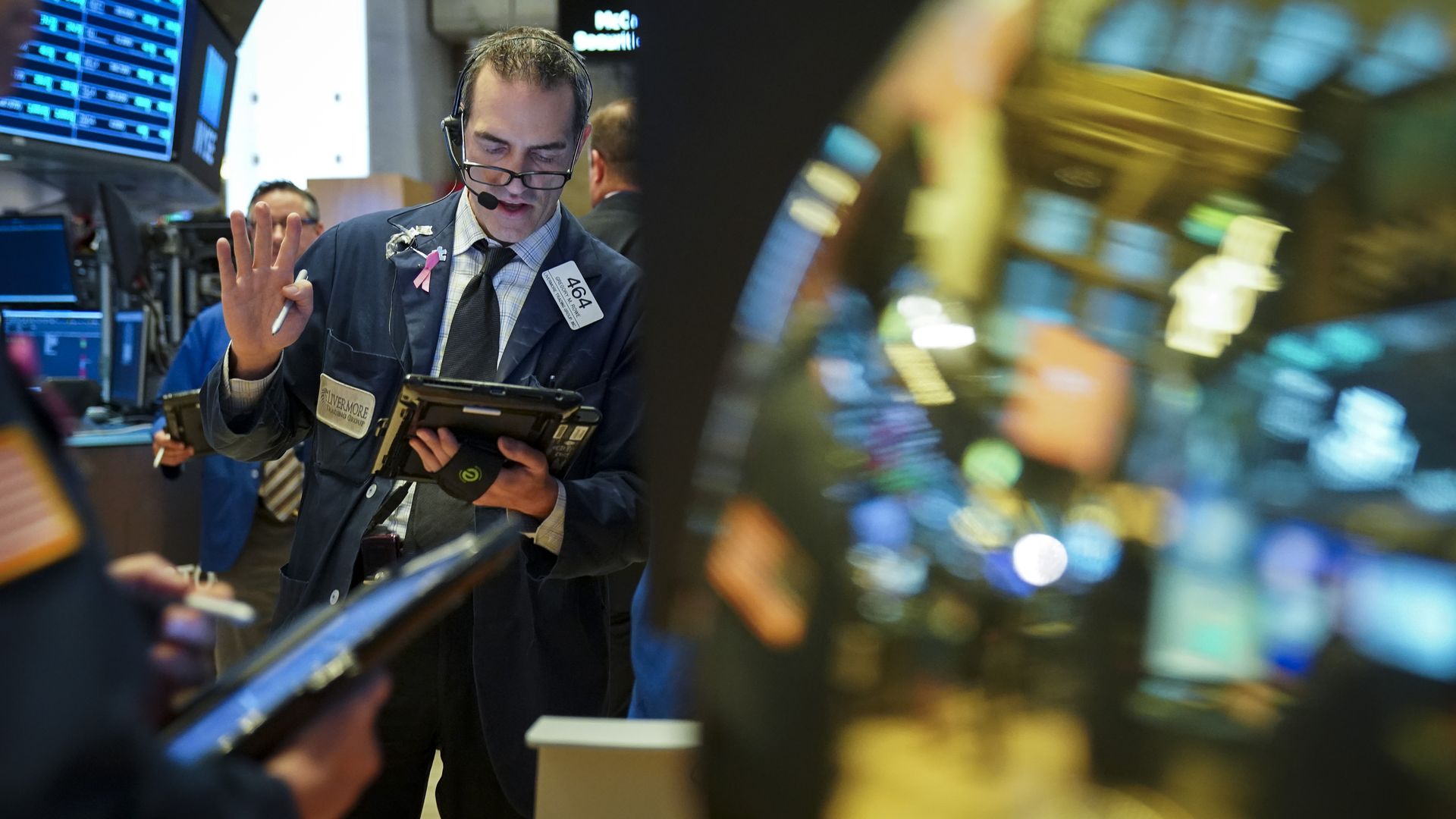
Companies added jobs for the 97th straight month — and the economy has now grown for 112, on track to match the longest economic expansion in American history (120 months ending in 2008). For the second-straight month, U.S. joblessness is 3.7%, the lowest in 49 years. And wages are up 3.1% year-on-year, the highest rate since 2009.
But there are counter-signals, too: Wage growth is beating inflation, for instance, but — for reasons no one has convincingly explained — still refuses to break into the solid gains of the booming late 1960s and early 2000s.
- Wage "growth rates are below historical averages but increasing," Laurence Ales, an economics professor the Tepper School of Business at Carnegie Mellon University, tells Axios.
Americans are working hard, but still not at historical rates: The average workweek rose to 34.5 hours from 34.4 hours in September. But the so-called "Labor Force Participation Rate" — a broad measure of how many prime-age people are working — was 62.9%, which is higher than recent lows but still among the smallest number in four decades.
One troubling aspect is that young men are not fully part of the boom:
- Despite the economic conditions, fewer prime-age men between 25 and 34 years old are working — or looking for work — than before the financial crash, writes Bloomberg's Jeanna Smialek.
- In 2008, their labor participation rate was 86.8%; now it's 86.1%.
- If these men were working at the same rate as a decade ago, 500,000 more would be on the job, or looking for one.
On a broad level, the economy is cooling: Next year, GDP growth is forecast to steadily shrink as the effect of the tax cut wears off. Meanwhile, the Commerce Department said today the U.S. is exporting less for the fourth-straight month, and the trade deficit with China rose again to a record $40.2 billion.
In October, U.S. stock markets marked their worst month since 2011. The S&P 500 fell again today by 0.63% to 2,723.
The forecasts for what comes next are all over the map — but recession is a common theme, Axios' Courtenay Brown reports....
- Megan Greene, chief economist at Manulife Asset Management, expects a recession after 2021.
- But it could be as early as next year, according to Mark Yusko, founder of hedge fund Morgan Creek Capital. He puts the odds at 100% — thanks to trade tensions.
- "The trade rhetoric is one of the dumbest things in the history of all administrations and it will cause a global recession," Yusko said at a recent investment conference.

